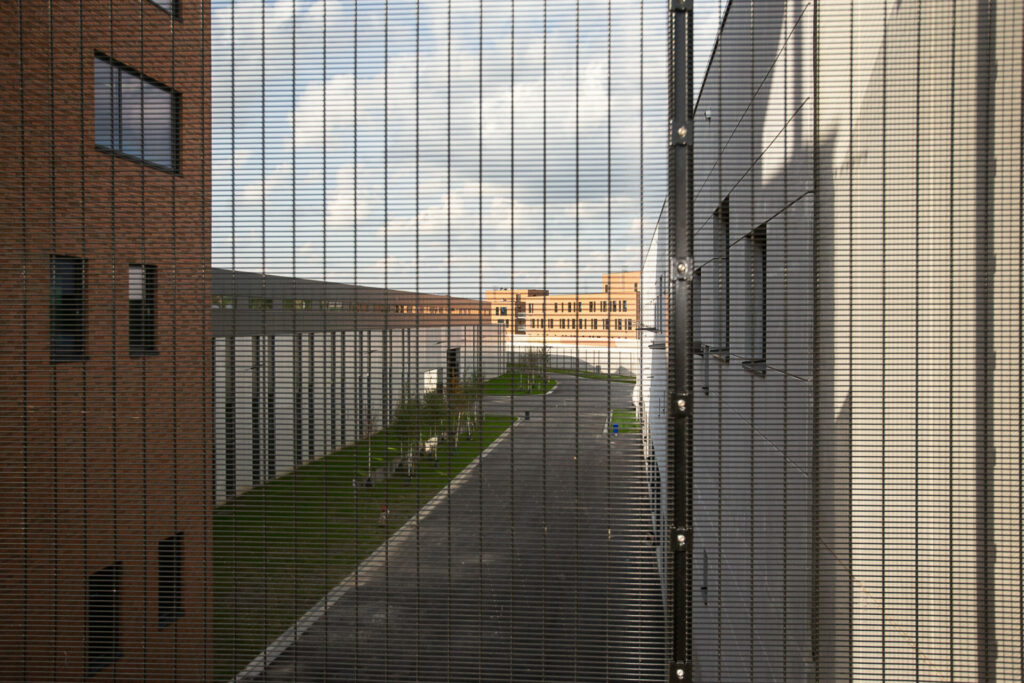Belgium's newest prison built in the Brussels suburb of Haren has been criticised for the conditions those detained in solitary confinement are subjected to. The facility has been described as “degrading and even inhumane”, La Libre reports.
One criminal lawyer, Nicolas Cohen, alleges that a client of his spent two days in a three-by-three metre cell under the glare of a neon light for the first 24 hours of his detention. The detainee was then plunged into total darkness the next day.
Prison supervisor Marc Nève admitted that there have been numerous complaints from detainees about solitary confinement in the Haren prison. These “prisons in a prison” as Cohen calls them are reserved either for punishment purposes or as a place to hold inmates in a fit of rage. One of Cohen's clients was placed in the cell after being found in possession of drugs.
Cohen's colleague Nicolas Crutzen subsequently visited the detainee and discovered that his cell was in “absolute darkness, not even a half-light". The prison guards were unable to justify this, with one of them new to the job and unaware of how the system works.
A neon light was then switched on, which Crutzen described as “in fact worse than the dark”. The Cohen’s client claimed to have been blinded by during his first day in solitary confinement.
Related News
- From reception crisis to racism: Amnesty criticises Belgium's human rights record
- 300 inmates given reduced sentences due to prison overcrowding
The prison's administration defended itself, arguing that “the shutters of these cells are never closed” and that detainees can contact the surveillance centre through an intercom system. Moreover, they stated that of the 446 prisoners, only one of them is kept in solitary confinement per week.
But Cohen told La Libre that “these conditions constitute, at the very least, degrading, and even inhumane treatment”. He recalled that the prison in Haren was built to improve the conditions of detainees. Opened in September of last year, it was supposed to help tackle overcrowding in Belgian prisons, while also providing a new “humane” and “modern” approach to detentions.

